Our department is an active center of academic research, with faculty involved in a variety of research projects across many periods and forms of literature. You can find out more about the research interests and publications of individual department members by visiting our People page. Below are some results of the research activities undertaken by members of the department:
Recent Books
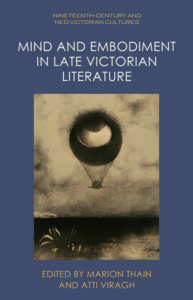 Atti Viragh and Marion Thain, eds., Mind and Embodiment in Late Victorian Literature (Edinburgh University Press, 2025).
Atti Viragh and Marion Thain, eds., Mind and Embodiment in Late Victorian Literature (Edinburgh University Press, 2025).
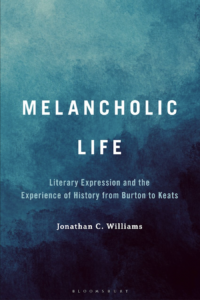 Jonathan C. Williams, Melancholic Life: Literary Expression and the Experience of History from Burton to Keats (Bloomsbury, 2025)
Jonathan C. Williams, Melancholic Life: Literary Expression and the Experience of History from Burton to Keats (Bloomsbury, 2025)
Recent articles and book chapters

Kosker Bevington, Ceylan, “The Domestic Transformations of Bram Stoker’s Dracula in The Formative Years of the Turkish Republic”, Adaptation in Turkish Literature, Cinema and Media ed. Seda Oz and Taner Can (London: Palgrave MacMillan, 2024), 39-56.
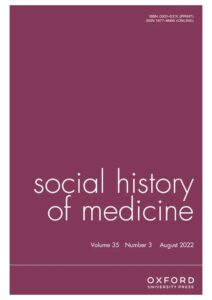 Ivana Bičak, “From Praising the Remedy to Eulogising the Patient: Cristóbal de Castillejo’s Satire of Guaiac in Early Modern Spain,” Social History of Medicine 37.1 (2024): 141-59.
Ivana Bičak, “From Praising the Remedy to Eulogising the Patient: Cristóbal de Castillejo’s Satire of Guaiac in Early Modern Spain,” Social History of Medicine 37.1 (2024): 141-59.
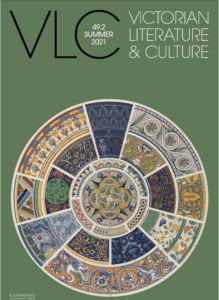 Ayşe Çelikkol, “Secularity and the Limits of Reason in Swinburne’s ‘Hymn to Proserpine’ and ‘Hymn of Man’,” Victorian Literature and Culture 49.2 (2021): 301-24.
Ayşe Çelikkol, “Secularity and the Limits of Reason in Swinburne’s ‘Hymn to Proserpine’ and ‘Hymn of Man’,” Victorian Literature and Culture 49.2 (2021): 301-24.
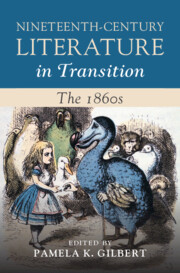
Ayşe Çelikkol, “Historical Ecologies in Heterodox Economic Thought and Literary Realism of the 1860s,” in Nineteenth-Century Literature in Transition: the 1860s, ed. Pamela K. Gilbert (Cambridge University Press, 2024), pp. 254-71.
Apala Das, “Modernity and Mobility: Re-reading Wordsworth and De Quincey,” The Explicator, 79.1-2 (2021): 48-51.
 Apala Das, “Reading in the Night of ‘The Rock’: Embodying Self-Referentiality in Late Stevens,” The Wallace Stevens Journal 45.2 (2021): 179-94.
Apala Das, “Reading in the Night of ‘The Rock’: Embodying Self-Referentiality in Late Stevens,” The Wallace Stevens Journal 45.2 (2021): 179-94.
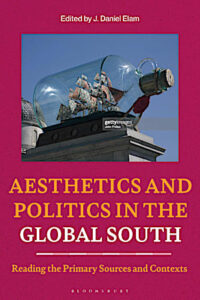 Apala Das, “An Introduction to Sri Aurobindo’s ‘The Ideal Spirit of Poetry’ and ‘Conclusion’ from The Future Poetry (India, 1917),” in Aesthetics and Politics in the Global South, ed. J. Daniel Elam (New York: Bloomsbury Academic, 2021), Bloomsbury Philosophy Library (online) <http://dx.doi.org/10.5040/9781350302587-intro.008>.
Apala Das, “An Introduction to Sri Aurobindo’s ‘The Ideal Spirit of Poetry’ and ‘Conclusion’ from The Future Poetry (India, 1917),” in Aesthetics and Politics in the Global South, ed. J. Daniel Elam (New York: Bloomsbury Academic, 2021), Bloomsbury Philosophy Library (online) <http://dx.doi.org/10.5040/9781350302587-intro.008>.

Hatime Çiftçi and Ceylan Köşker Bevington, “Pragmatics in Discourse”, in Pragmatics and Language Teaching, eds. Şeyda Selen Çimen and Betül Bal Gezegin (Pegem Akademi, 2021):?
Ceylan Köşker Bevington, ‘Violet Fane‘, The Palgrave Encyclopaedia of Victorian Women’s Writing, eds. Lesa Scholl and Emily Morris (Palgrave Macmillan, Cham, 2021), pp.
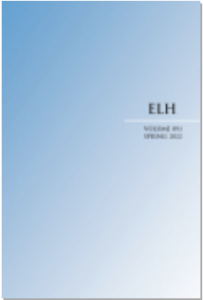
Atti Viragh, “‘The Keener Touch’: Walter Pater and the Hermeneutic Scene of Contact,” ELH 89.1 (2022), 185-213.
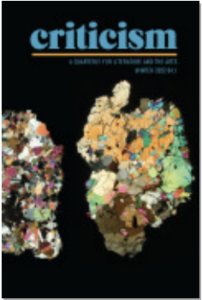
Jonathan Williams, “Melancholy’s Ends: Thomson’s Reveries,” Criticism: A Quarterly for Literature and the Arts 64.1 (2022), 53-76. https://doi.org/10.1353/crt.2022.0002
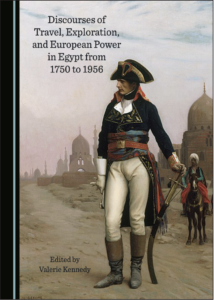 Jonathan Williams, “Rasselas, Egypt, and Cosmopolitan Oblivion,” in Discourses of Travel, Exploration, and European Power in Egypt from 1750 to 1956, ed. Valerie Kennedy (Cambridge Scholars Publishing, 2023): 16-30.
Jonathan Williams, “Rasselas, Egypt, and Cosmopolitan Oblivion,” in Discourses of Travel, Exploration, and European Power in Egypt from 1750 to 1956, ed. Valerie Kennedy (Cambridge Scholars Publishing, 2023): 16-30.
Forthcoming
Timothy Wright. Mutant City: Imagining Twenty-First Century Johannesburg in Speculative Film and Fiction (Forthcoming with Wits University Press)
This book lies on the border between urban studies and cultural studies. In the early decades of the 21stcentury, a large and varied body of speculative and experimental fiction has accrued around the city of Johannesburg. This book examines this body of fiction – urban fantasy, postapocalyptic fiction, superhero comics, existential fiction, modernist montages – for its imaginings of non-linear and otherwise weird forms of transformation, often drawn from the bewildering changes in the structure of the city itself. It places these imaginings against the backdrop of a country in which the project of national transformation appears to have stalled.
Atti Viragh, “Close Reading and the Hermeneutic Circle of Attention,” in Close Reading as Attentional Practice, eds. Ewan Jones and Marion Thain (Edinburgh University Press, forthcoming).
Apala Das, “Abundance, Scarcity, and the Question of Translatability in Raymond Carver and Ai Jiang’s Meta-Minimalist Fiction,” co-authored with Robert McGill and Connor Bennett (accepted and forthcoming in Modern Fiction Studies, 2026).
Ongoing work
Emily Brontë in Turkey: Translations, Transformations, and Adaptations 1945-1977. Ceylan Köşker Bevington is currently working on an article that seeks to explain the popularity of Emily Brontë’s Wuthering Heights with its Turkish audience— first through its translations and then through its cinematic afterlives. Following Abbie L. Cory’s contestation that considers Wuthering Heights as a ‘microcosm’ of the social, political, and economic turbulences of the 1830s and 1840s Britain (Cory 2004, 2), she suggests that the novel’s Turkish audience, themselves undergoing similar socio-political commotions mid-twentieth century, may have found Emily Brontë’s narrative resonant with their own anxieties, aspirations, and struggles within a rapidly transforming social order. In line with Li Min’s reading of the novel as a text that transforms ‘to meet the demands of […] [local] political and cultural realit[ies]’ (Min 2020, 46), she contends that the impact of Wuthering Heights in Turkey reveals the novel as a universally adaptable cultural artifact, through which shifting configurations of socio-political order in moments of fraction finds utterance.
Rural Capitalism and Nineteenth-Century British Literature. With the aim of putting New Economic Criticism in dialogue with ecocriticism, Ayşe Çelikkol’s book project discusses literary responses to the increasing commercialization of the countryside in Britain. Examining poems, novels, and travel writing by authors such as William Cobbett, John Clare, and Thomas Hardy, the project traces those insights about rural capitalism that crystallize in literary forms and techniques from parataxis to realist mediation.
City on Fire. Madeleine Read’s current book project is about the end of history. In 1988, there were many ways to envision such an end: in rapture, preached by a newly-awakened evangelical movement; in liberalism, preached by anti-communists with their eyes on perestroika; in capitalism, preached by economists bewitched by fantasies of the free market. All of these were dismaying to a fractured and inchoate political Left. But a handful of troubled plays produced in London that year try to imagine worlds—utopias, republics, new Jerusalems—beyond the limits of Thatcherism. This project is partly about those plays, and partly about a portentous iconography of conflagration that runs through them, heir to a long tradition of imagining the horizons of Paradise to be dotted with cities on fire. London’s burning, as The Clash would have it, and no one is dialing 999.

